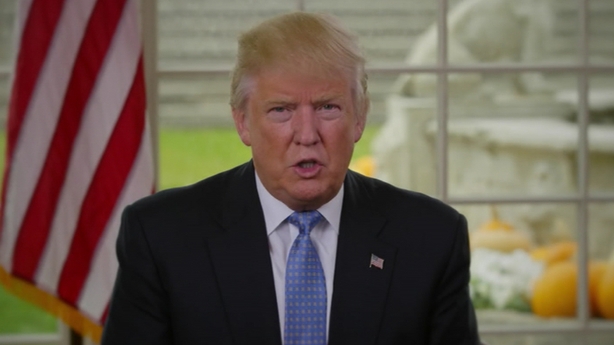US President-elect Donald Trump is expected to name the chief executive of Exxon MobilCorp as the country's top diplomat, a source familiar with the situation said, an appointment that would put in place an official with close ties to the Russian government.
Mr Tillerson, 64, is an oil executive with extensive experience in international negotiations and a business relationship with Russian President Vladimir Putin.
Exxon chief Rex Tillerson emerged yesterday as Mr Trump's leading candidate for US secretary of state over 2012 Republican presidential nominee Mitt Romney and three other people.
Mr Tillerson met with Mr Trump for more than two hours at Trump Tower this morning. It was their second meeting about the position this week.
The source, who spoke on condition of anonymity, said Mr Tillerson was the expected pick but cautioned no formal offer had yet been made.
However, Mr Trump’s spokesman Jason Miller said no announcement on the high-profile job was forthcoming in the immediate future.
"Transition Update: No announcements on Secretary of State until next week at the earliest. #MakeAmericaGreatAgain," he tweeted.
Meanwhile, the CIA has concluded that Russia intervened in the 2016 election to help Mr Trump (below) win the White House, and not just to undermine confidence in the US electoral system.
US intelligence agencies have assessed that as the 2016 presidential campaign drew on, Russian government officials devoted increasing attention to assisting Mr Trump's effort to win the election, a US official said.

Citing US officials briefed on the matter, the Washington Post reported yesterday that intelligence agencies had identified individuals with connections to the Russian government who provided thousands of hacked emails from the Democratic National Committee and others, including the chairman of Hillary Clinton's presidential campaign, to WikiLeaks.
US President Barack Obama has ordered intelligence agencies to review cyber attacks and foreign intervention into the 2016 election and deliver a report before he leaves office on 20 January.
By autumn this year, Russian hackers had turned almost all their attention to the Democrats.
Virtually all the emails they released publicly were potentially damaging to Mrs Clinton and the Democrats, the official said.
"That was a major clue to their intent," the official said.
"If all they wanted to do was discredit our political system, why publicise the failings of just one party, especially when you have a target like Trump?"
A second official familiar with the report said the intelligence analysts' conclusion about Russia's motives does not mean the intelligence community believes that Moscow's efforts altered or significantly affected the outcome of the election.
Russian officials have denied all accusations of interference in the US election.
A CIA spokeswoman said the agency had no comment on the matter.
We need your consent to load this rte-player contentWe use rte-player to manage extra content that can set cookies on your device and collect data about your activity. Please review their details and accept them to load the content.Manage Preferences
The hacked emails passed to WikiLeaks were a regular source of embarrassment to the Clinton campaign during the race for the presidency.
US intelligence analysts have assessed "with high confidence" that at some point in the extended presidential campaign Russian President Vladimir Putin's government had decided to try to bolster Mr Trump's chances of winning.
The Russians appear to have concluded that Mr Trump had a shot at winning and that he would be much friendlier to Russia than Mrs Clinton would be, especially on issues such as maintaining economic sanctions and imposing additional ones, the official said.
Moscow is launching a similar effort to influence the next German election, following an escalating campaign to promote far-right and nationalist political parties and individuals in Europe that began more than a decade ago, the official said.
In both cases, said the official, Mr Putin's campaigns in both Europe and the United States are intended to disrupt and discredit the Western concept of democracy by promoting extremist candidates, parties, and political figures.
In October, the US government formally accused Russia of a campaign of cyber attacks against Democratic Party organisations ahead of the 8 November presidential election.
Mr Obama has said he warned Mr Putin about consequences for the attacks.
Mr Trump has said he is not convinced Russia was behind the cyber attacks. His transition team issued a statement on "claims of foreign interference in US elections" yesterday but did not directly address the issue.

